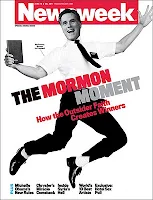Eliminating the mortgage interest deduction has become something of a fetish for liberals and libertarians in America. The enthusiasm for eliminating the deduction suggests a hatred for bourgeois values.
Liberals use it like a shield to obscure the hidden privileges they enjoy under the tax code, privileges which the vast lumpen proletariat is too dumb to understand. Extracting more revenue from their lessers so that they have more money to play with is the goal of liberals, whose constant refrain is "the money is in the middle." Actually, the money escaping taxation in America is at the top, where nearly $2 trillion of net compensation escapes Social Security taxation, amounting to a tax loss to the feds of about $300 billion annually.
Libertarians use elimination of the mortgage interest deduction more actively. To them it is like a club which they can use as a weapon to drive people from their homes in their effort to turn workers into interchangeable parts, which they can then move around wherever they need them and thus drive down the cost of their labor. If you are unemployed for a very long time because you won't move from your home, to a libertarian like a John Tamny or a Megan McArdle at The Atlantic, you are nothing but a depreciating asset, as she has put it.
Just look how Bruce Bartlett attacks the mortgage interest deduction
here, misrepresenting its place not simply by singling it out but also by failing to place it within the spectrum of tax loss expenditures generally:
"The problem, insofar as tax reform is concerned, is that the mortgage interest deduction and that for property taxes reduce federal revenues by $100 billion per year."
If only that were an impressive number compared to the usual categories of tax loss expenditures.
The Joint Committee on Taxation, for example, puts the combined tax loss from deductions for health-related and cafeteria plans at $140 billion.
Tax loss from exclusion of retirement-related benefits comes to $160 billion when you include Social Security and Railroad retirement benefits, capital gains excluded at death, and pension and 401k plan contributions.
The last two together alone come to $91 billion.
Coincidently, reduced rates of tax on capital gains and dividends as a category by itself means a tax loss of nearly $91 billion, more than the mortgage interest deduction at $78 billion.
The rich may benefit a lot from the tax perspective from the mortgage interest deduction, but they benefit more than anyone from reduced rates of tax on capital gains, and Bruce Bartlett
knows it:
For most people, income is simple: it means wages or perhaps a pension or Social Security benefits. Income from capital – dividends, interest, rent and capital gains – seldom enters into the calculation. The vast bulk of such income is earned by the ultrawealthy, like Mr. Romney.
Bruce Bartlett has made it a regular habit to sniff at the proposals of Republicans, who recently restored the mortgage interest deduction plank in their platform, the real inspiration for his screed.
In this he reminds me of no one so much as
Katie Couric when she went nosing around the "unwashed middle" before her ilk got hosed off in the November 2010 elections. But liberals still have a certain air about them.
I think they need another bath.

















